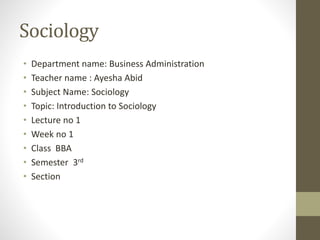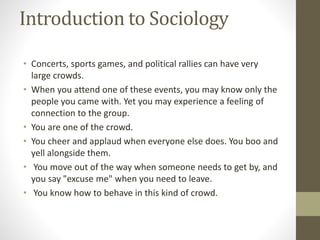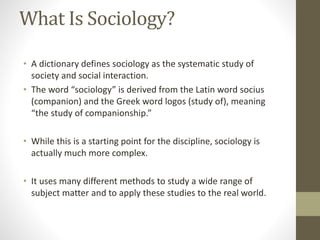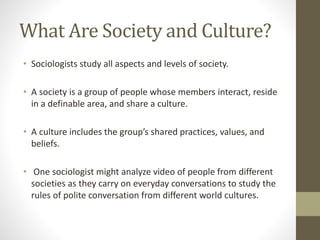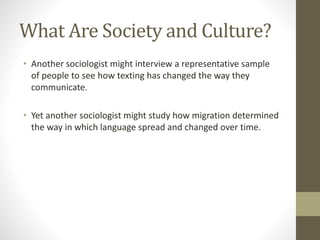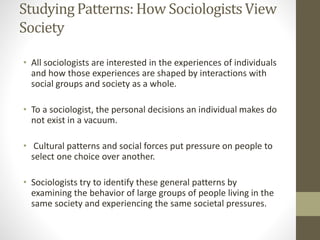This document provides an introduction to sociology, outlining key concepts and the origins of sociology as an academic discipline. It discusses how sociology emerged in the 19th century due to industrialization, travel exposing Europeans to different cultures, and the success of the natural sciences. Auguste Comte is identified as the founder of sociology, coining the term in 1838. The document also summarizes the early contributions of other pioneers like Karl Marx, Herbert Spencer, Emile Durkheim, and Max Weber to the field.

